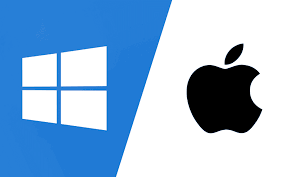The Operating System (OS) concepts studied in an MCA (Master of Computer Applications) program typically cover the following topics:
1. Introduction to Operating Systems
- Definition of OS
- Functions of an Operating System
- Types of Operating Systems (Batch, Time-sharing, Distributed, Real-time, Embedded OS)
- OS Components (Kernel, Shell, System Calls, etc.)
2. Process Management
- Processes and Threads: Difference and Life Cycle
- Process Scheduling Algorithms (FCFS, SJF, Round Robin, Priority)
- CPU Scheduling
- Deadlocks: Conditions, Prevention, and Avoidance
- Inter-process Communication (IPC)
3. Memory Management
- Memory Hierarchy
- Paging and Segmentation
- Virtual Memory: Concept, Demand Paging
- Swapping and Fragmentation (Internal & External)
- Page Replacement Algorithms (FIFO, LRU, Optimal)
4. File System Management
- File Systems and Directories
- File Allocation Methods (Contiguous, Linked, Indexed)
- File Access Methods
- Disk Scheduling Algorithms (FCFS, SSTF, SCAN, C-SCAN)
5. Concurrency and Synchronization
- Critical Section Problem
- Semaphores and Mutex
- Synchronization Problems (Producer-Consumer, Reader-Writer, Dining Philosophers)
- Deadlock Handling: Deadlock Detection and Recovery
6. Input/Output Systems
- I/O Hardware: Devices, Controllers
- I/O Software Layers
- Interrupt Handling
- Direct Memory Access (DMA)
7. Security and Protection
- Security Issues: Threats, Attacks
- User Authentication
- Protection Mechanisms: Access Control, Encryption
- Firewall, Intrusion Detection System
8. Distributed Systems
- Concepts of Distributed Systems
- Distributed File Systems
- Distributed Coordination and Synchronization
9. Virtualization and Cloud OS
- Basics of Virtualization
- Hypervisors: Type 1 and Type 2
- Cloud-based Operating Systems
These topics provide an understanding of how an OS functions and how it manages hardware, processes, and resources to facilitate user interaction.
